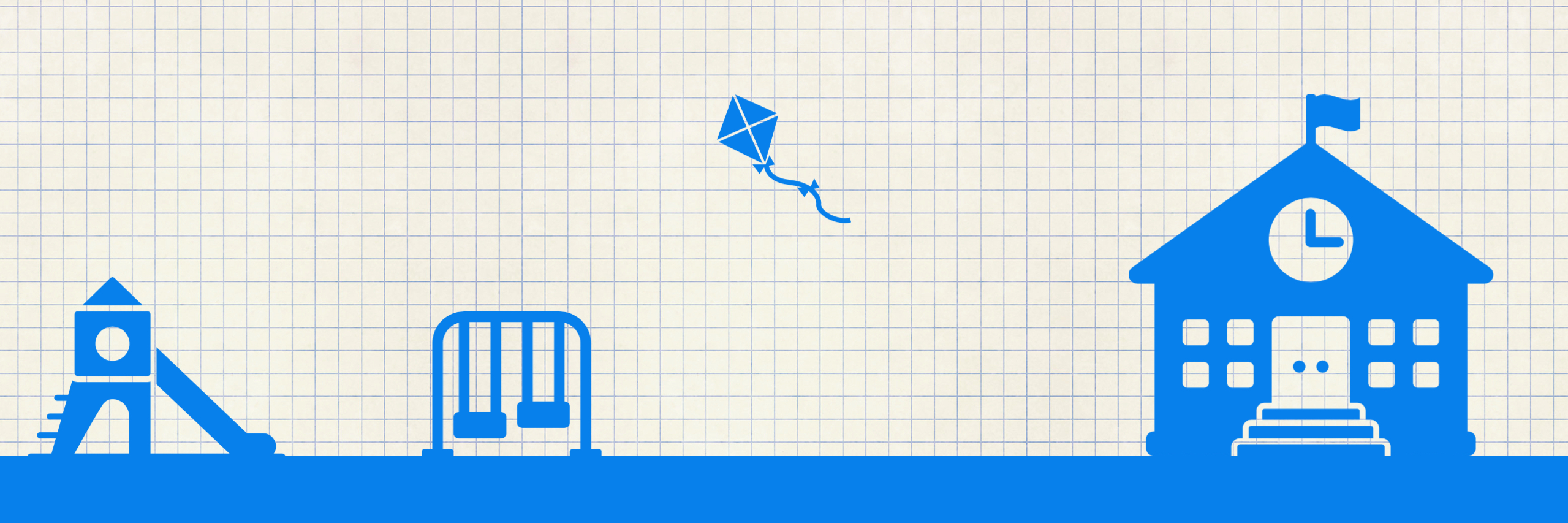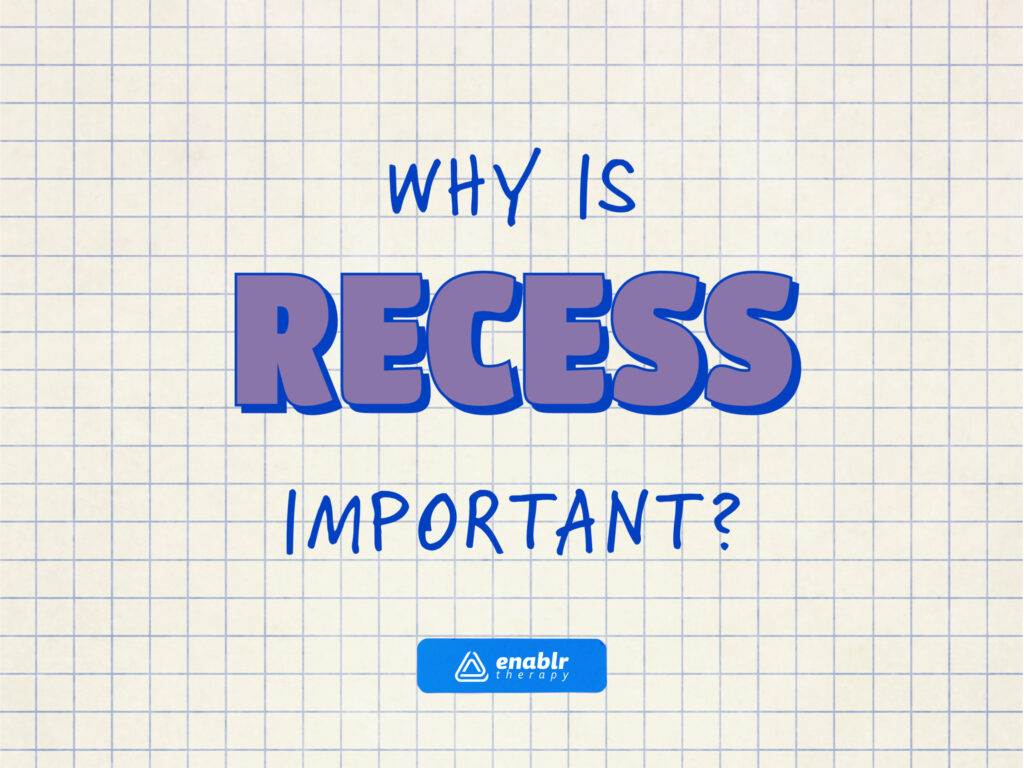
Recess is fading from our children’s school day in favor of more time spent on curriculum. Although this might seem like a good idea- after all kids are in school to learn- it is actually counter productive. Movement and play breaks provide opportunities for sensorimotor experiences, as well as a sense of autonomy, that actually promote our students’ learning.
Think back to meetings that you have attended. Did you ever feel like you needed to move around? Did you reach a point where it was hard to concentrate or focus? Have you ever gotten tired of being told what to do or think all day? We all have experienced that from time to time. Now think about what you do in these situations to help you keep focus. Move! You might stand up in the back of the room. You might tap your toes or wiggle your foot. You might fidget with a pen or something in your hands. You might even chew some gum. Movement helps us to focus and engage our brain.
Movement breaks are even more important for our children. With shorter attention spans, they need a chance to reset their sensory systems and brain between periods of concentrated learning. Squeezing in 5 more minutes of material won’t be effective if they are unable to take in what is being taught.
Numerous studies have shown that recess has benefits that directly support learning.
Benefits of Recess:
1. Physical Health and Fitness
In an era where screen time often outweighs active play, recess provides a crucial opportunity for children to engage in physical activity. Regular physical activity is associated with numerous health benefits, including:
- Improved cardiovascular health: Active play helps in developing strong heart and lung functions.
- Healthy weight maintenance: Recess helps combat obesity by promoting calorie expenditure.
- Enhanced motor skills: Activities like running, jumping, and playing sports improve coordination and motor skills for overall development.
2. Cognitive Development and Academic Performance
Research has shown a strong correlation between physical activity and cognitive function. Recess can positively impact academic performance by:
- Boosting attention and concentration: Physical activity increases blood flow to the brain, enhancing alertness and focus.
- Improving memory and learning: Movement and play stimulate brain function, aiding in better information retention.
- Reducing stress and enhancing mood: Physical activity triggers the release of endorphins, which can reduce stress and improve overall mood, leading to a more conducive learning environment.
3. Social Skills and Emotional Well-Being
Recess is a time when children learn vital social skills that are not typically taught in the classroom. It offers a unique environment for:
- Developing social interactions: Children learn to communicate, collaborate, and resolve conflicts during play.
- Building friendships: Free play provides opportunities for children to connect with their peers and form friendships.
- Understanding social norms and behaviors: Through games and activities, children learn about teamwork, fairness, and empathy.
4. Creativity and Imagination
Unstructured playtime during recess fosters creativity and imagination. When children are given the freedom to choose their activities, they often engage in imaginative play, which is crucial for:
- Problem-solving skills: Creative play encourages children to think outside the box and come up with solutions.
- Emotional expression: Through imaginative scenarios, children can express their thoughts and emotions in a safe environment.
- Cognitive flexibility: Engaging in different types of play helps children adapt to new situations and think creatively.
5. Overall Well-Being
Recess contributes significantly to the overall well-being of children by providing a balance between structured learning and free play. It ensures that children:
- Feel happier and more satisfied: The enjoyment derived from play can lead to greater happiness and life/school satisfaction.
- Develop a love for physical activity: Positive experiences with physical activity at a young age can instill lifelong healthy habits.
- Experience reduced anxiety and depression: Regular breaks and physical activity can help mitigate symptoms of anxiety and depression, promoting better mental health.
Medical associations and institutions across the country have acknowledged the importance of physical activity for overall development and the need for recess in schools. The Center for Disease Control Prevention has put together a flier about the benefits of recess that can be shared with educators and families. It can be accessed from this link. Parents and therapy professionals can advocate for recess and movement breaks throughout the school day to support our student’s learning and development.
View more of our pediatric articles here.
References
CDC (n.d.). Keep Recess in School. Retrieved from https://www.cdc.gov/healthyschools/physicalactivity/pdf/Recess_Data_Brief_CDC_Logo_FINAL_191106.pdf
Murray et al (2013). The Crucial Role of Recess in School. American Academy of Pediatrics. Retrieved from https://publications.aap.org/pediatrics/article/131/1/183/30893/The-Crucial-Role-of-Recess-in-School


